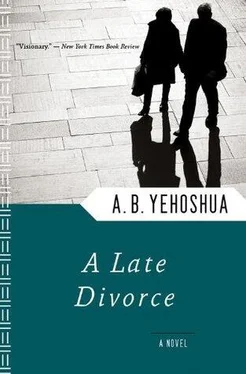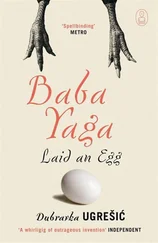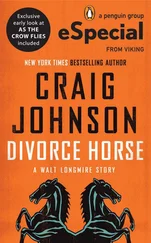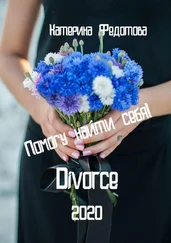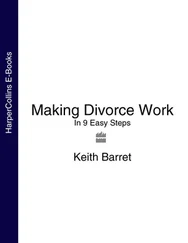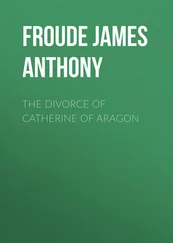“Calderon,” said Tsvi gently. “Say goodbye to my mother.”
He roused himself, and when he looked up I saw his face bathed in tears. He wiped them away as he climbed out of the car, flushing hotly, in inner conflict.
“Forgive me, Mrs. Kaminka.” He shook my hand, nearly falling all over it. “It’s just… it’s this Chekhov book. Do you know it? We saw the show of Uncle Vanya, and so Tsvi brought me the book. A tremendous production. Fantastic. And when I think of how everyone cried then it makes me want to cry again… although I know it’s silly to shed tears over a bunch of Russians who lived a hundred years ago and were probably anti-Semites at that. Well, how are you? I heard that it all went well, praise God. As long as it’s over — sometimes what matters is not what you decide but simply having decided…”
He shook his head, red-eyed with tears that still wet his cheeks. Suddenly he remembered to say:
“I wanted to wish you a happy Passover. And what lovely spring weather it is… winter is finally over…”
“Where will you be for the seder?” I asked.
He glanced at Tsvi. “I don’t know yet.”
“At home,” declared Tsvi sharply. “You’ll be at home. Haven’t you gotten that into your head yet?”
“Yes,” he sighed, looking back and forth between the two of us. “I suppose I’ll be at home.” He gripped his book while stealing a glance at mine. And again he recalled something:
“Mr. Kaminka told me that on your mother’s side… that you… I mean, that you have a bit of us in you…”
“A bit of who?”
“Of Abrabanel.” He pronounced the name grandly. “That you’re part Abrabanel… I mean that you have their blood…”
When did they meet and what made Yehuda tell him about Grandmother Abrabanel?
“He was very glad to hear that we’re part Sephardi,” explained Tsvi.
“Does that seem important to you?” I asked softly.
He squirmed redly. “It’s another way of looking at yourselves… a different bloodline… the Abrabanels are of very fine stock. Of course, it’s not literally the blood… I don’t believe in that… it’s something intangible…”
He glanced at Tsvi with such deep love that it appalled me. Tsvi smiled mockingly back. And just then I saw her pass quickly by above the treetops. I felt a splitting pain in my head and made a face.
“Is anything wrong?” both asked at once.
“No. Nothing.”
“Well, we’d better be off,” said Tsvi. “If you’re not home soon, they really will murder you.”
“Let them,” said Calderon with a wry smile.
Tsvi kissed me warmly and said once more, “I’m glad that it’s over with.” And again I felt that he had left something unsaid. They got into the car, waving goodbye as it turned, and drove off to the east. My clear head was muddled now; it ached all over and things in the distance went fuzzy. The white car headed down the road — and then, by the railroad tracks, in the wet jungle of weeds, someone went flying, a dress shot up in the air, and the car stopped and drove back in reverse. Tsvi jumped out while it was still moving and ran up to me. “Mother, perhaps I should keep those papers that father gave you. It’s better not to leave them in the hospital. Someone might take them and lose them.”
So that’s what he had wanted to say all along. Perhaps even why he had come. “Who will take them?” I asked, not showing him my feelings, my eyes on the jungle of weeds. And he said, “But that’s our only document of ownership for the house. Perhaps I should put it in my safe-deposit box because legally it’s all we have… so that if we ever should want to…” “Want to what?” I asked. “…It doesn’t matter. Whatever. Father won’t be here, and…” He was breathing heavily, afraid he had said the wrong thing. “It wasn’t my idea. It was Calderon’s. He’s an old hand at these things.” But although I didn’t say so I knew that he was lying and that the idea wasn’t Calderon’s. And then all at once, smiling sadly, he relented. Far away a dog barked. “Did you know,” I said, “that the dog still hasn’t come back?” His arms dangled helplessly. “Yes. I heard. That Kedmi is a bastard. But Horatio has run away before and always returned.” “Never for so long, though,” I said. “Perhaps tomorrow you should look for him.” “All right,” he promised. “We’ll do that.” He hugged me again. “You look wonderful. It’s done you a world of good already.” And he gave me a last kiss. Even in the worst of times he was never afraid to kiss me, to hold me tight, to calm and comfort me.
The gate swung open and I walked back in. Only Musa and Yehezkel, who felt greatly relieved that Tsvi hadn’t taken me, were still waiting. We walked up the path that went past the closed ward and saw the three strange children still playing fearlessly under the stares from behind the bars. We passed the library, whose door was partly open because I hadn’t locked it properly. Something made me want to go inside. A sweet, burned smell hung over the dim room. The reddish light glanced off the rows of books covered with brown wrapping paper and off the dirty teacups and the plate of crackers that still lay on the table. The flowers I had put everywhere this morning were still there too, just softer-looking now, their heads bowed. A hard crust of dried mud covered the floor, which was littered with cigarette butts and a black paper skullcap, while a pair of sunglasses had been forgotten on one of the shelves. I took them and put them on, turning the world a dull brownish gray. This morning the sharp light was as harsh as splinters of broken glass. And since then no one had been in here, everyone was busy preparing for the holiday. I put the flowers on a tray, carried them outside, and handed them to Yehezkel. Then I shut the door, locking it with the key I still had in my pocket, and threw the flowers on the ground with its trampled grass and the tire tracks of the taxi. I had waited by the door for Yehuda to come since early morning. At dawn I was up and around in my white smock, picking flowers and arranging them inside, setting out the teacups and watering around the cottage, which I suddenly noticed was not at all straight but oval with crooked walls. I had my papers in the pocket of my smock and was all there: I never remember feeling so together before. And I was alone because the day nurse, Avigayil, who had been supposed to help me, never appeared for some reason. At eight o’clock the black taxi arrived, cutting like a boat between the lawns, its wheels spraying mud, until Yehuda mistakenly stopped it a hundred meters away. He climbed out of it first, dressed in a dark suit, and led the rabbis to the library, picking his way between the puddles, blinded by the strong sun, sinking into the mud, fording swarms of little insects that flew about newly generated from the light. One of the men, an old Yemenite with a slight limp and a plastic carrying case, rushed spryly ahead, jabbing his cane in the ground and bending now and then to sniff some flower or pluck the leaf of some plant and crush it between his fingers. After him came round, jolly Rabbi Mashash, who had been to see me several times before, carefully guiding a thin old man in black clothes and dark sunglasses, while slowly bringing up the rear was an odd-looking person in a long, tawny army greatcoat and a visored cap. I hurried to greet them, feeling a twinge when I saw how pale Yehuda looked: this was the third time this week that I had seen him, and each time he looked paler than before. The Yemenite bowed as though performing a lively dance step and shook my hand with a smile before darting quickly into the cottage. I followed him inside and Yehuda ushered in the two older rabbis while the younger one — who had a head of golden curls and a complexion that, though red from the warmth of the woolen scarf around his neck, was as smooth as a girl’s — lingered to kiss the mezuzah in the doorway and then entered hesitantly too. I watched the clean floor turn to muck in no time. The men were amazed at how much mud fell from their shoes and made an effort to clean it up. “Never mind,” I said to them while they took off their hats, put on skullcaps, wiped their perspiring faces, and exclaimed at the abundance of flowers in the small room. “Never mind.” Then Rabbi Mashash introduced his companions. The oldest was Rabbi Avraham Avraham; next came the Yemenite scribe, Rabbi Korach; and last was Rabbi Subotnik, a new immigrant from Russia, a scholarly prodigy straight from a forced-labor camp.
Читать дальше
